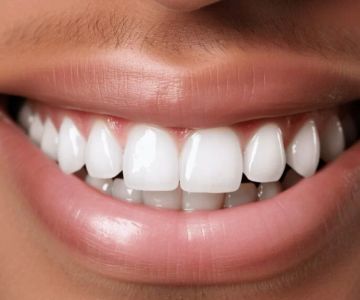Why Oral Hygiene is Important
Oral hygiene is not just about having a bright smile; it's a preventive measure for various oral and systemic health problems. Good oral hygiene helps prevent cavities, gum disease, bad breath, and other issues. Moreover, it's linked to overall body health. For instance, an infection in the mouth can spread through the bloodstream and cause problems like heart disease and stroke. Research shows that conditions like gingivitis and periodontitis can contribute to serious health conditions such as cardiovascular disease and stroke. Conversely, certain health conditions like diabetes, osteoporosis, HIV/AIDS, and Alzheimer's disease can negatively impact teeth and gums. Recognizing the signs of poor oral hygiene, such as bleeding gums, tooth decay, chronic bad breath, loose teeth, gum recession, mouth sores, toothache, swelling of the jaw, and gingivostomatitis, is essential for early intervention.
How to Improve Oral Hygiene
Maintaining excellent oral hygiene involves several steps. Using fluoride toothpaste and a soft-bristled toothbrush at a 45-degree angle towards the gums helps remove plaque and bacteria. Flossing is crucial to clean the spaces between teeth, and if dexterity is an issue, interproximal brushes or dental picks can be used. Brushing the tongue also helps eliminate bacteria. Antibacterial mouthwash is beneficial in reducing plaque buildup, but an alcohol-free formula is preferred to prevent dry mouth. Regular dental exams and cleanings are indispensable for good oral health. Smoking should be avoided as it is a major cause of gum disease and oral cancer. The best oral hygiene routine is one that can be consistently followed, and dentists can provide personalized regimens based on individual needs.
Risks and Benefits of Oral Hygiene
Practicing good oral hygiene offers numerous benefits, including healthier teeth and gums, a beautiful smile, fresher breath, reduced need for dental work, lower risk of heart disease, stroke, diabetes, and oral cancer. Preventative dental care is more cost-effective than restorative or emergency care in the long run. However, poor oral hygiene can lead to various problems and increased healthcare costs.
Recovery and Outlook
The frequency of dental visits for exams and cleanings depends on individual circumstances. While many people benefit from six-month intervals, those prone to cavities or gum disease may need more frequent appointments. If warning signs like tooth pain, bleeding gums, loose teeth, or chronic bad breath occur, a dental consultation is necessary. Early detection and treatment of oral health problems can significantly improve overall health.
Educating Patients on Oral Hygiene
Dental patient education is vital for forming strong oral hygiene habits. Dentists should act as collaborators rather than instructors to be more effective. It's essential to make patients aware of the benefits and risks of oral care and provide clear instructions. Tailoring education to each patient's needs and goals is crucial. Building a trusted relationship, using systematic approaches to habit formation and behavior change, and making at-home oral care easy and fun are key strategies. Compassionate care and genuine investment in patients' success can enhance the impact of dental care education.
Conclusion
In conclusion, educating patients about proper oral hygiene is of paramount importance. By providing clear and personalized information, dentists can help patients form habits that lead to optimal oral health. This not only benefits their teeth and gums but also contributes to their overall well-being. Regular communication, understanding patients' unique circumstances, and offering practical solutions can make a significant difference in ensuring patients adopt and maintain effective oral hygiene practices.


 Westgate Dental Arts
Westgate Dental Arts Coventry Family Dental
Coventry Family Dental Familia Dental
Familia Dental Dr. Daniel S. Fife, DDS
Dr. Daniel S. Fife, DDS Dentistry At Suburban Square: Michael I. Wollock, DMD
Dentistry At Suburban Square: Michael I. Wollock, DMD Comfort Care Dental
Comfort Care Dental The Importance of Oral Health Education During Pregnancy for a Healthy Pregnancy
The Importance of Oral Health Education During Pregnancy for a Healthy Pregnancy Why Skipping Dental Checkups Can Lead to Bigger Oral Health Problems
Why Skipping Dental Checkups Can Lead to Bigger Oral Health Problems Advantages of Porcelain Dental Restorations
Advantages of Porcelain Dental Restorations Best Tips for Brushing Your Teeth Properly for Healthy Gums: Essential Techniques for Oral Health
Best Tips for Brushing Your Teeth Properly for Healthy Gums: Essential Techniques for Oral Health How Can Diabetes Cause Tooth and Gum Problems? Preventing and Managing Oral Health Issues
How Can Diabetes Cause Tooth and Gum Problems? Preventing and Managing Oral Health Issues Healthy Habits for Promoting Good Oral Health and Hygiene: Tips for a Healthy Smile
Healthy Habits for Promoting Good Oral Health and Hygiene: Tips for a Healthy Smile